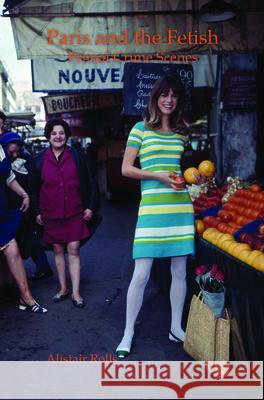Paris and the Fetish: Primal Crime Scenes » książka
Paris and the Fetish: Primal Crime Scenes
ISBN-13: 9789042037779 / Angielski / Miękka / 2014 / 184 str.
Freud's 1927 essay on the acquisition of a screen memory, or fetish, allows the subject to come to terms with the traumatic truth that, for him, dominates the present moment (in Freud's scenario, the truth of mother's sexuality) by maintaining, alongside and not in place of it, a parallel story of the past (the myth of the phallic mother). In this book Freud's theory of the fetish, and in particular this way of allowing two opposed and ostensibly mutually exclusive narratives to co-exist, is used to provide a number of Parisian crime texts with radical new solutions. The fetishistic world-view of Charles Baudelaire's poetics will be shown to provide the template for all overvalued instances of women passing by; notably, it will be seen how the famous assault on one of Christian Dior's models as she displayed the New Look for the first time in Montmartre in 1947 depends on a fetish erected in the poem "A une passante." The same Paris streets allow red herrings to be raised to the status of truth in novels by Fred Vargas, Leo Malet and Frederic Cathala. In these texts the discovery of a primal scene allows doubt to be cast over authorial solutions and new murderers or victims to be found. In the case of Jean-Paul Sartre's La Nausee, the fetishism at work is shown to have harboured a serial killer where no crime was previously considered to have taken place. In these analyses, fetishism is mapped onto prose poetics, intertextuality and deconstruction in order to challenge the way we read text. More importantly, rereading these texts allows us to see fetishism in a new light as a force for positive, creative acts of meaning-making.











